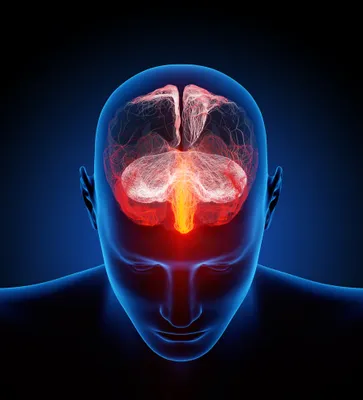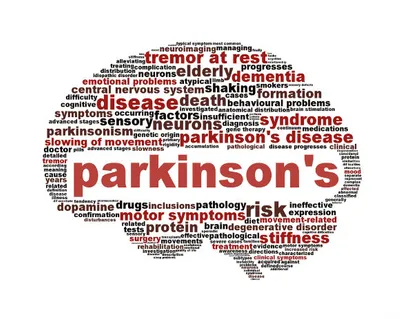Migraine headache sufferers can tell you that having a migraine is no fun, and can be debilitating. However, there’s more to it than just a splitting pain in the head—having migraines regularly can actually raise other health risks, according to Prevention magazine.
Having migraines can increase your chances of experiencing certain physical and ailments that are more than just a headache. Here are six health issues that have been tied to migraines. Checking with your doctor for assistance with migraine management is never a bad idea.
1. Bell’s Palsy
Bell’s Palsy is a neurological disorder that affects the face and ability to speak, known by its characteristic droop on one side of the mouth area. The American Migraine Foundation has warned migraine sufferers that this condition is more likely to occur in major headache sufferers.
A study detailed by the foundation notes that after looking at health records of more than 130,000 patients, it found that migraine sufferers were twice as likely as others to also have Bell’s Palsy. The underlying link is not known, said the foundation, which added that the neurological disorder could also cause pain near the ear and loss of the sense of taste. The “good” news is that Bell’s Palsy is usually temporary.
2. Strokes
A stroke caused by a blood clot can seriously impair physical and mental functions, including loss of speech and memory. Prevention magazine noted that a link between strokes and migraines has been proven by a study, and “that link was especially strong among women who suffered migraines accompanied by an aura.” An aura refers to the telltale symptoms just before a migraine peaks.
This particular link said that women who have “aura” migraines are 400-percent more likely to have a stroke. The study attributes the connection to restricted blood flow—it is believed that migraines are the result of blood vessels being constricted in the brain from certain triggers such as stress.
3. Depression
Many ailments, especially if they are perceived to be incurable or unmanageable, can create feelings of depression, and migraines are no different. Again, the link seems to be stronger in women, and according to EveryDay Health about 18-percent of all migraine sufferers also have depression.
The symptoms of depression are cause by the “unrelenting pain” as well as knowing the ailment is disrupting your daily life, noted EveryDay Health. Depression is also believed to occur in migraine sufferers due to a “physical byproduct of the same chemical imbalances in the brain that cause the headaches”.
4. Parkinson’s Disease
Back to that migraine “aura” again—experts say those who have symptoms of migraine before the headache becomes its worse are more likely to develop Parkinson’s Disease, according to a 2014 article from Healthline.
The article explains that migraines may be a warning sign during middle age that Parkinson’s is on its way. Parkinson’s disrupts the brain and causes difficulty with motor functions as well as creating tremors. There is currently no cure for Parkinson’s, but there are treatments—it’s caused by the death of nerve cells that create dopamine (migraine sufferers have been found to be hypersensitive to dopamine due to a chronic dopamine deficit).
5. Bowel Malfunction
Experts have found some connection between migraines and Irritable Bowel Syndrome (IBS), an unpleasant condition that causes diarrhea and abdominal pain. According to EveryDay Health, a 2005 study found that up to 53-percent of people with IBS also have frequent headaches.
For some the symptoms can strike at the same time, according to EveryDay Health. For others, the IBS symptoms occur between migraine attacks. The article said the link is traced “to a genetically sensitive nervous system that turns overly vigilant” and leads to both ailments.
6. Vision Problems
Some people with migraines get “flashes” in their field of vision (there’s that aura mentioned again). Others can get short-term eyesight problems including blind spots, according to the Mayo Clinic.
The clinic refers to an “ocular migraine” as one that affects your vision. While it says these symptoms are often very temporary and aren’t a cause for major concern, but noted that a “retinal migraine” can cause temporary bouts of full blindness, which of course will be alarming. The clinic said a retinal migraine will also only affect one eye. It’s best to see an eye doctor in case it’s not temporary, urges the clinic.









